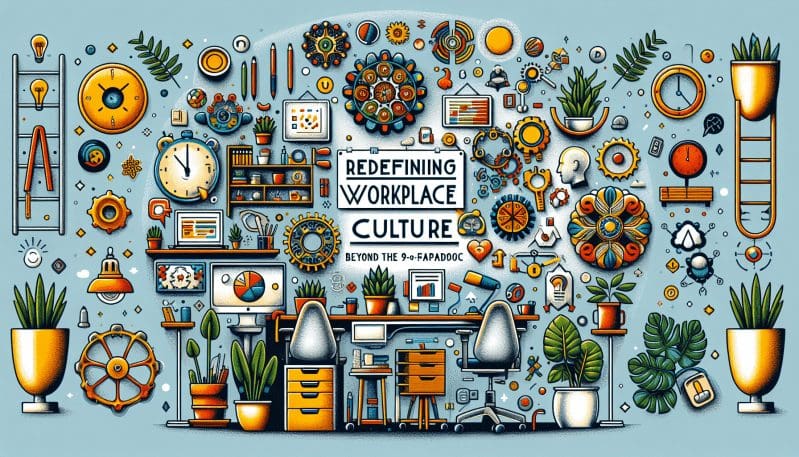In recent years, a seismic shift has been observed in the realm of workplace culture, prompting us to question the long-standing norms of the traditional 9-to-5 workday. The 21st century has ushered in an era where workers are increasingly vocal about their needs for greater work-life balance, the liberty to work remotely, and the option to have flexible working hours. Amidst this transformation, it is essential to delve into how these emerging preferences are not just reshaping the individual worker’s experience but also influencing the broader fabric of organizational structures and success.
The paradigm shift from the stringent 9-to-5 routine to more adaptable schedules is not without its merits. Research has consistently shown that when employees are afforded the autonomy to mold their work schedules around their personal lives, productivity tends to spike. The rationale is simple: a workforce that is less stressed and more in control of their time is more motivated, engaged, and ultimately more effective at their jobs. This flexible approach also caters to a diverse workforce with varying commitments and responsibilities outside of work, thereby fostering an inclusive environment that values and draws upon the strengths of its diverse personnel.
However, as much as this new era of flexibility promises to enhance employee satisfaction and organizational efficacy, it also comes with its own set of challenges. The blurring lines between work and personal life can lead to ‘always-on’ work cultures, where the expectation to remain continually accessible can become a source of stress and burnout. It raises a critical question: how can we reap the benefits of this newfound flexibility while safeguarding our personal time and mental well-being?
Workers’ cooperatives have been strong advocates for a more democratic and humane approach to work, and they offer valuable insight into how mainstream corporate culture might evolve to embrace more worker-friendly practices. These cooperatives operate on a model where workers have a say in the business decisions, which often results in workplace policies that are attuned to the collective needs of the employees rather than solely to the financial bottom line. The cooperative ethos places a premium on the welfare of the workers, which in turn, can lead to more sustainable and socially responsible business practices.
In conclusion, as we navigate the complexities of a changing workplace culture, it is imperative to strike a balance between the benefits of flexible work arrangements and the need to maintain clear boundaries between work and personal life. By drawing inspiration from workers’ cooperatives and their emphasis on democratic participation and employee well-being, mainstream businesses have the opportunity to redefine workplace culture for the better. The future of work is not just about where and when tasks are performed; it’s about creating environments where productivity, satisfaction, and success are the results of a culture that values its workers as whole human beings, with lives both inside and outside the realms of their jobs.




























